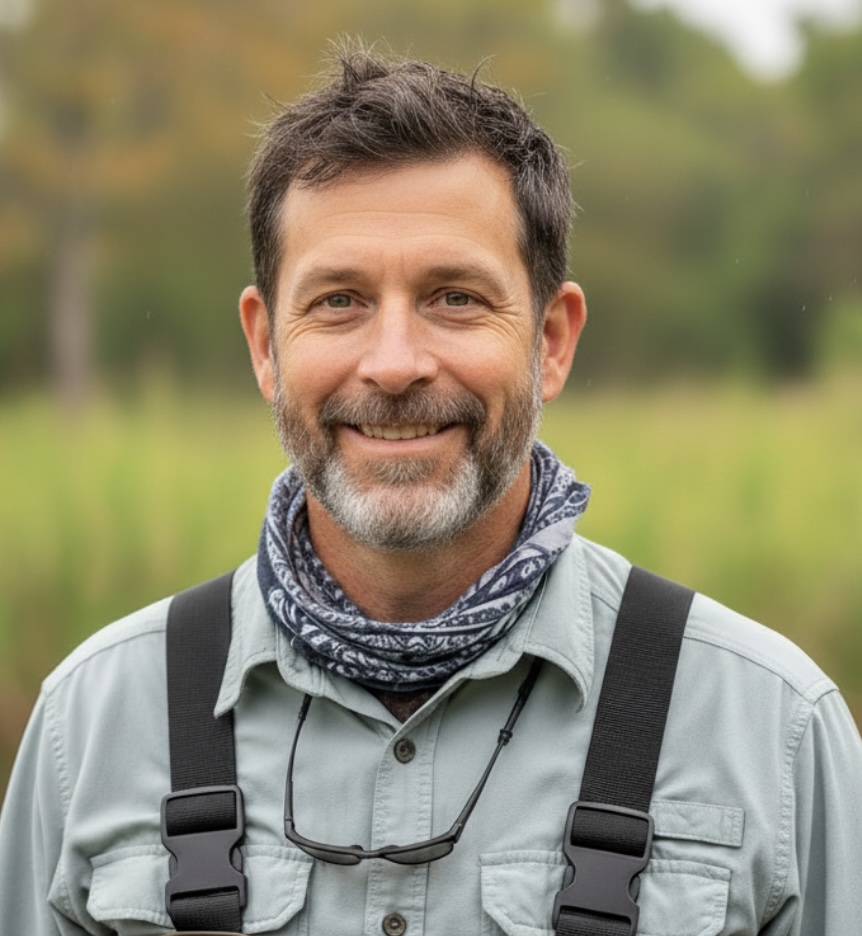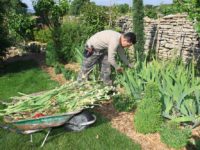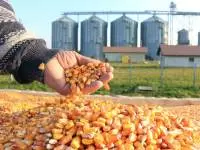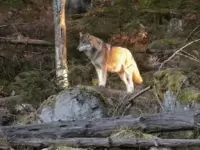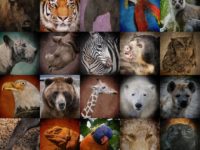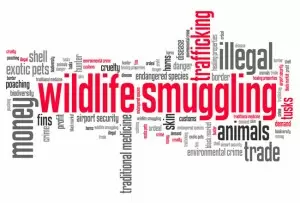
A wildlife forensics specialist applies scientific investigation techniques to wildlife crimes, including poaching, illegal wildlife trade, and environmental damage. This is a highly specialized niche within the broader forensic science technician occupation. Entry typically requires a bachelor's degree in forensic science, biology, or chemistry. According to May 2024 BLS data, the broader forensic science technician occupation (which includes wildlife forensics specialists) has a median salary of $67,440, though dedicated wildlife forensics positions are extremely limited and highly competitive.
If you're passionate about both environmental protection and criminal justice, wildlife forensics sits at a fascinating intersection worth exploring. This specialized field uses scientific methods to investigate crimes against wildlife-from illegal elephant ivory trade to oil spill prosecutions-helping law enforcement agencies protect endangered species and prosecute environmental criminals. While the work is deeply rewarding, it's important to understand both the unique career opportunities and the competitive realities of this niche specialization within forensic science.
Terminology Note: Throughout this article, "forensic science technician" refers to the broad occupational category (BLS SOC 19-4092) that includes all forensic laboratory professionals. "Wildlife forensics specialist" refers specifically to forensic scientists who work primarily or exclusively on wildlife crime cases-a small subset within the larger forensic science technician occupation. Some professionals in general forensic laboratories occasionally handle wildlife cases as part of broader forensic responsibilities without specializing exclusively in wildlife work.
What is Wildlife Forensics?
Wildlife forensics is the application of scientific investigation methods to legal cases involving wildlife and environmental crimes. This field emerged from the convergence of conservation biology, forensic science, and environmental law enforcement. Wildlife forensics specialists analyze physical evidence from crimes, including poaching, illegal hunting, exotic pet trade violations, bushmeat trafficking, and environmental disasters like oil spills.
Unlike general forensic science, wildlife forensics requires specialized knowledge of animal biology, ecology, and species identification. A wildlife forensics specialist might spend one week analyzing DNA from suspected pangolin scales seized at a port, and the next examining tissue samples from marine mammals killed in an oil spill. The work directly supports wildlife conservation efforts by providing the scientific evidence needed to prosecute environmental criminals and enforce international treaties like CITES (Convention on International Trade in Endangered Species).
What Does a Wildlife Forensics Specialist Do?
Wildlife forensics specialists serve as the scientific backbone of wildlife crime investigations. They receive evidence from wildlife inspectors, fish and game wardens, and conservation officers, then apply rigorous scientific analysis to answer critical questions: What species is this? Where did it come from? How did it die? Is this product derived from an endangered animal?
The day-to-day work involves several specialized activities:
Species Identification: Using morphological examination, DNA sequencing, and chemical analysis to identify animals, animal parts, or products. For example, determining whether "leather goods" are actually made from endangered crocodile species, or identifying the geographic origin of confiscated elephant ivory to trace trafficking routes.
Cause of Death Determination: Conducting necropsies (animal autopsies) and tissue analysis to establish whether an animal died from natural causes, disease, poaching, or environmental contamination. This might involve toxicology testing to detect poison in a raptor suspected of being illegally killed, or examining bullet trajectories in illegally hunted big game.
Evidence Collection and Documentation: Examining physical evidence from suspects, crime scenes, and confiscated materials. This includes collecting samples, photographing evidence, maintaining chain of custody documentation, and preparing detailed forensic reports that can withstand legal scrutiny.
Court Testimony: Serving as expert witnesses in criminal and civil trials, explaining complex scientific findings to judges and juries. Wildlife forensics specialists must translate technical results about DNA markers or chemical composition into clear, understandable evidence that supports legal proceedings against wildlife criminals.
Research and Method Development: Staying current with emerging forensic technologies and developing new analytical techniques specific to wildlife crimes. This might include creating DNA databases for endangered species or refining methods to distinguish between legally harvested and poached animals.
Where Does a Wildlife Forensics Specialist Work?
Most wildlife forensics specialists work for federal and state wildlife agencies, spending the majority of their time in specialized laboratory settings. The work environment emphasizes safety, precision, and contamination prevention.
Laboratory Work: The primary workplace is a controlled laboratory environment where specialists analyze samples using microscopes, DNA sequencers, mass spectrometers, and other analytical equipment. Forensic scientists wear personal protective equipment, including safety goggles, lab coats, and gloves, both to prevent injury and to avoid contaminating evidence samples. Laboratories maintain strict protocols for evidence handling and chain of custody documentation.
Field Work: Occasionally, wildlife forensics specialists must collect samples or examine crime scenes in the field. This might involve traveling to a poaching site to collect tissue samples, examining carcasses at the scene of a suspected illegal hunt, or collecting water and soil samples at an environmental disaster site. Field work can occur in challenging conditions-from remote wilderness areas to offshore marine environments.
Work Schedule: Most positions maintain standard working hours (Monday through Friday, daytime schedules), though specialists may need to be on-call for urgent cases. Evidence collection doesn't wait for business hours, so flexibility is occasionally required. Laboratory positions typically offer more predictable schedules than field-based conservation roles.
Major Employers: The U.S. Fish and Wildlife Service Forensics Laboratory in Ashland, Oregon, is the world's only full-service wildlife forensics laboratory dedicated exclusively to investigating crimes against wildlife. This facility serves as the primary employer for dedicated wildlife forensics specialists in the United States. Additional opportunities exist with state fish and game departments, though these positions are limited and often combine general forensic work with occasional wildlife cases. International opportunities include positions with CITES enforcement programs and organizations like Interpol's Environmental Security unit.
Wildlife Forensics Specialist Salary & Compensation
Wildlife forensics specialists are classified under the Bureau of Labor Statistics occupational category "Forensic Science Technicians" (SOC 19-4092). According to May 2024 BLS data, forensic science technicians-the broader occupation that includes wildlife forensics specialists-earned a median annual salary of $67,440. Salary varies significantly based on experience, employer type, specialization, and geographic location.
It's important to note that BLS data reflects the entire forensic science technician occupation, not exclusively wildlife forensics positions. Dedicated wildlife forensics roles may command different compensation depending on employer (federal positions typically pay more than state/local), required specialization (DNA analysis, toxicology), and the rarity of wildlife-specific expertise.
| Percentile | Annual Salary | Hourly Wage |
|---|---|---|
| 10th Percentile | $45,560 | $21.90 |
| Median (50th) | $67,440 | $32.42 |
| 90th Percentile | $110,710 | $53.23 |
Salary levels are influenced by several factors. Federal government positions-particularly with the U.S. Fish and Wildlife Service-typically offer higher compensation than state or local positions. Geographic location matters significantly, with positions in high cost-of-living areas commanding higher salaries. Specialists with advanced degrees (master's or PhD) and specialized certifications often earn toward the higher end of the salary range. Those working in niche specializations like DNA analysis or toxicology may command premium compensation due to their rare skill sets.
It's important to note that dedicated wildlife forensics positions are rare compared to general forensic science roles. Many professionals working in wildlife forensics started in broader forensic science positions and specialized over time, or work in general forensic labs that occasionally handle wildlife cases.
Job Outlook & Career Reality
Broader Forensic Science Outlook: According to the Bureau of Labor Statistics, employment of forensic science technicians (the broader occupational category) is projected to grow 13% from 2024 to 2034-much faster than the 4% average growth projected for all occupations. The BLS projects approximately 2,900 job openings annually for forensic science technicians over the decade. Many of these openings will result from the need to replace workers who retire or transition to different occupations.
This strong growth reflects increasing demand for forensic evidence in criminal investigations, technological advances in forensic analysis, and continued high caseloads in state and local crime laboratories. The forensic science field overall offers solid employment prospects for qualified candidates.
Wildlife Forensics Niche Reality: However, wildlife forensics specifically represents a very small subset of the broader forensic science field. The reality of career opportunities in this specialization requires honest discussion:
Limited Dedicated Positions: According to information from the U.S. Fish and Wildlife Service, the USFWS Forensics Laboratory in Ashland, Oregon, is the world's only full-service laboratory dedicated exclusively to wildlife forensics. This single facility serves the entire United States and provides forensic support to international wildlife law enforcement agencies. The laboratory employs a small team of specialized scientists, and openings are rare. State fish and game departments occasionally have forensic positions that include wildlife cases, but these are limited and often combine general forensic work with occasional wildlife applications.
Government Funding Dependence: Job availability in wildlife forensics depends heavily on government budget allocations for wildlife law enforcement and conservation programs. Federal and state funding levels for wildlife protection vary based on legislative priorities and economic conditions, which can impact hiring and position stability over time.
High Competition for Few Positions: The combination of limited positions and significant interest from biology, environmental science, and forensic science graduates creates intense competition for wildlife forensics roles. Many highly qualified candidates-often with graduate degrees and years of general forensic experience-compete for each opening when positions become available. Entry-level dedicated wildlife forensics positions are particularly rare.
Realistic Career Pathways: Most professionals currently working in wildlife forensics didn't start in dedicated wildlife positions. The typical career trajectory involves beginning in general forensic science or crime scene investigation, building expertise in relevant analytical techniques (DNA analysis, toxicology, trace evidence analysis), and then transitioning to wildlife applications over several years. Many forensic scientists work in general crime laboratories that handle diverse caseloads-including occasional wildlife cases-rather than working exclusively on wildlife crimes.
Education Requirements for Wildlife Forensics
Wildlife forensics specialists need a strong foundation in natural sciences combined with forensic training. Educational requirements are rigorous and reflect the technical complexity of the work.
Minimum Requirement - Bachelor's Degree: A four-year bachelor's degree is the minimum educational requirement for entry into forensic science. Acceptable majors include forensic science, chemistry, biology, physics, or related natural sciences. The Forensic Science Education Programs Accreditation Commission (FSEPC) accredits forensic science programs, and degrees from accredited programs are preferred by most employers.
Core coursework should include strong foundations in chemistry (organic and analytical), biology (molecular biology and genetics), physics, mathematics, and statistics. For those interested in wildlife forensics specifically, additional courses in ecology, wildlife biology, and conservation biology provide valuable background knowledge.
Advanced Degrees - Master's and Doctoral Programs: Many wildlife forensics specialists hold master's degrees or PhDs in forensic science or related specializations. Advanced degrees significantly improve employment prospects and open pathways to senior positions, laboratory management roles, and research positions. A master's degree typically takes 2 years beyond the bachelor's degree and allows for specialization in areas like DNA analysis, toxicology, or trace evidence examination.
Doctoral degrees (PhD) are less common but valuable for those pursuing careers in forensic research, academic positions, or high-level laboratory leadership. A PhD is particularly beneficial for developing new forensic methods or contributing to the scientific literature on wildlife forensics techniques.
| Degree Level | Typical Timeline | Career Opportunities |
|---|---|---|
| Bachelor's Degree | 4 years | Entry-level forensic technician, evidence technician, laboratory assistant |
| Master's Degree | 2 years (post-bachelor's) | Forensic analyst, specialized technician (DNA, toxicology), laboratory supervisor |
| Doctoral Degree (PhD) | 4-6 years (post-bachelor's) | Research scientist, laboratory director, university faculty, method development specialist |
On-the-Job Training: Even with a relevant degree, forensic scientists typically require extensive on-the-job training. New hires undergo training specific to their laboratory's procedures, equipment, and protocols. Training duration varies by position but often spans several months to over a year. Technicians must demonstrate competency before working independently on cases or testifying in court. Many laboratories require passing proficiency tests before allowing independent casework.
Continuing Education: Forensic science is a rapidly evolving field. Professionals must participate in ongoing professional development to stay current with technological advances, new analytical methods, and changes in legal standards for evidence. Annual training requirements are common in forensic laboratories.
Certification & Professional Development
While not always required, professional certification demonstrates expertise and commitment to the field. Certification can enhance employment prospects and professional credibility, particularly when testifying in court.
Wildlife Forensic Scientist Certification (Priority for Wildlife Focus): The Society for Wildlife Forensic Science (SWFS) offers certification specifically for wildlife forensics specialists. This certification is the most relevant credential for those focusing on wildlife crimes. Requirements include:
- Bachelor's degree in a relevant scientific field
- Minimum of one year of wildlife forensic casework experience
- Letter of recommendation from a supervisor or colleague
- Passing score on an annual written examination covering wildlife forensics principles and practices
SWFS certification demonstrates specialized knowledge to courts, employers, and colleagues. It carries particular weight when qualifying as an expert witness in wildlife crime cases.
General Criminalistics Certification (Broader Application): The American Board of Criminalistics (ABC) offers voluntary certification in various forensic specialties. While not wildlife-specific, ABC certification in relevant areas (molecular biology/DNA, trace evidence) can support career advancement in forensic science broadly. Practitioners demonstrate proficiency through multiple-choice examinations in their chosen specialty area.
| Certification | Issuing Organization | Best For |
|---|---|---|
| Wildlife Forensic Scientist | Society for Wildlife Forensic Science (SWFS) | Specialists focusing exclusively or primarily on wildlife crimes |
| Criminalistics (various specialties) | American Board of Criminalistics (ABC) | General forensic scientists who occasionally handle wildlife cases |
Which Certification to Pursue? If you're committed to wildlife forensics as your primary career focus, prioritize SWFS certification. For those working in general forensic laboratories that handle diverse caseloads, including occasional wildlife cases, ABC certification in your primary technical specialty (DNA analysis, trace evidence, etc.) may be more immediately valuable. Many seasoned professionals hold multiple certifications.
Wildlife Forensics Related Degrees
Related Career Paths & Alternative Opportunities
Given the limited number of dedicated wildlife forensics positions, it's valuable to understand related career paths that still serve conservation and environmental protection goals. Many of these alternatives offer more abundant job opportunities while utilizing similar scientific skills.
Environmental Forensic Science: Environmental forensic scientists investigate pollution incidents, illegal dumping, contamination events, and environmental regulatory violations. This field has more job opportunities than wildlife forensics while still contributing to environmental protection. Specialists might trace the source of chemical contamination, investigate oil spills, or provide evidence in environmental liability cases.
Crime Scene Investigation (Environmental Focus): Some crime scene investigators specialize in environmental and wildlife crimes, collecting evidence in the field for laboratory analysis. While not conducting the laboratory analysis themselves, CSI professionals work closely with forensic scientists and play a critical role in evidence collection and documentation. This career path offers more job opportunities and earlier entry points than laboratory positions.
Conservation Law Enforcement: Wildlife officers, game wardens, and conservation officers enforce wildlife protection laws and conduct field investigations. While less laboratory-focused, these roles directly combat wildlife crimes and often collaborate with forensic specialists. They offer more abundant job opportunities and earlier career entry compared to forensics laboratory positions.
Wildlife Biology with Forensics Application: Some wildlife biologists work in positions that occasionally intersect with forensic science-conducting wildlife mortality investigations, population genetics studies, or disease surveillance that may support legal cases. These roles combine field biology with occasional forensic applications.
General Forensic Science (with Wildlife Specialization): The most common path is starting in general forensic science and developing wildlife expertise over time. Working in a state or regional crime laboratory that handles diverse cases-including occasional wildlife crimes-provides steady employment while building the experience needed for future wildlife specialization.
Professional Organizations & Resources
For Wildlife Forensics Specialists (Priority):
The Society for Wildlife Forensic Science (SWFS) is the premier professional organization for wildlife forensics, founded in 2009 to advance and standardize wildlife forensic practices. SWFS offers professional certification (detailed in the Certification section above), proficiency testing programs, technical resources and method validation studies, and wildlife forensics-specific job listings. Student memberships are available at reduced rates.
The U.S. Fish and Wildlife Service (FWS) operates the Forensics Laboratory in Ashland, Oregon (the primary U.S. employer for dedicated wildlife forensics specialists, as discussed above). The FWS website provides information on current wildlife protection laws, the laboratory's forensic capabilities, and employment opportunities, including internships for students and early-career professionals.
For Broader Forensic Science Career Development:
The American Academy of Forensic Sciences (AAFS) is the largest professional association for forensic scientists across all specializations in the United States. While not wildlife-specific, AAFS provides valuable networking, professional development, and resources for anyone pursuing forensic science careers. Benefits include annual scientific meetings with specialized sections, peer-reviewed journals, continuing education opportunities, and job listings across all forensic disciplines. Student memberships are available.
Frequently Asked Questions
How competitive is the wildlife forensics field?
Wildlife forensics is extremely competitive, with very limited positions available. The U.S. Fish and Wildlife Service Forensics Laboratory is the primary dedicated employer, and openings are rare. Most successful candidates have years of general forensic science experience before specializing in wildlife forensics. Starting in general forensic science and building wildlife expertise over time is the most realistic career path.
Can I work in wildlife forensics with just a biology degree?
A biology degree can be a pathway into wildlife forensics, but you'll need to supplement it with chemistry coursework and forensic training. Most positions require strong backgrounds in both biology and chemistry. Consider pursuing a master's degree in forensic science after your biology bachelor's degree, or gaining laboratory experience in molecular biology or analytical chemistry to strengthen your qualifications.
What's the difference between wildlife forensics and environmental forensics?
Wildlife forensics focuses specifically on crimes against animals-poaching, illegal trade, and direct harm to wildlife. Environmental forensics investigates pollution, contamination, and environmental regulatory violations. Environmental forensics has more job opportunities and broader applications. Both fields use similar analytical techniques but apply them to different types of cases. Some professionals work in both areas.
Do I need law enforcement experience to become a wildlife forensics specialist?
No, law enforcement experience is not required for laboratory-based wildlife forensics positions. However, you must be comfortable working within the criminal justice system, testifying in court, and collaborating with law enforcement agencies. Understanding legal procedures and evidence handling protocols is essential. Some field-based positions (like game wardens) do require law enforcement training and certification.
Are there wildlife forensics jobs outside government agencies?
Most wildlife forensics positions are in government laboratories (federal and state). However, limited opportunities exist in academic research, consulting firms that provide forensic services to government agencies, and international organizations like CITES and Interpol. Private consulting opportunities are rare and typically require extensive experience. University positions may combine teaching, research, and occasional forensic casework.
Key Takeaways
- Specialized Niche Field: Wildlife forensics is a highly specialized subset of the broader forensic science technician occupation (BLS SOC 19-4092), with very limited dedicated positions primarily at the U.S. Fish and Wildlife Service Forensics Laboratory in Oregon.
- Competitive Salaries: The broader forensic science technician occupation earns a median salary of $67,440 annually (May 2024 BLS), with earnings ranging from $45,560 at the entry level to over $110,710 for experienced specialists with advanced expertise. Wildlife-specific roles may vary based on employer and specialization.
- Strong Overall Job Growth: The broader forensic science technician field projects 13% employment growth from 2024-2034 with approximately 2,900 annual openings, though wildlife-specific positions remain rare and extremely competitive.
- Education Requirements: Minimum requirement is a bachelor's degree in forensic science, chemistry, biology, or related natural science. Master's degrees and PhD programs significantly improve prospects for advancement and specialized roles.
- Realistic Career Path: Most wildlife forensics specialists start in general forensic science positions and specialize over time. Consider related careers in environmental forensics, crime scene investigation, or conservation law enforcement as alternative pathways to serve conservation goals.
Ready to explore forensic science and environmental science careers? Discover degree programs that can prepare you for specialized careers in wildlife forensics and related conservation science fields.
2024 US Bureau of Labor Statistics salary and job growth figures for forensic science technicians reflect national data, not school-specific information. Conditions in your area may vary. Data accessed January 2026.

